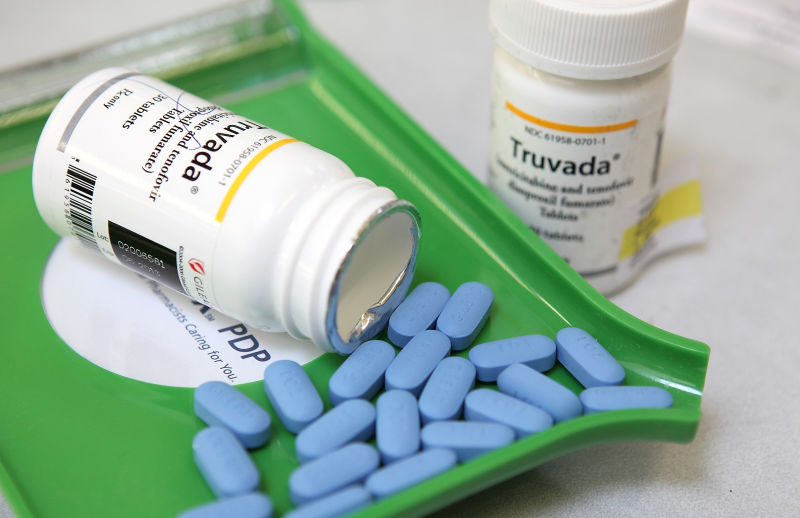Yet in 2014, the U.S. Public Health Service published guidelines for PrEP and in July, President Obama signed an executive order updating the National HIV/AIDS Strategy to include full access to PrEP for those who want it.
Volk said the Kaiser study is significant in part because of the success during real-world application. Researchers tracked condom use and sexually transmitted infections and found that 41 percent of participants reported a decrease in their use of condoms, and half were diagnosed with a sexually transmitted disease in the first year after starting PrEP.
"The fact that we've seen as many sexually transmitted infections as we have and not seen any new HIV infections really reinforces that this medication seems to work very well, even in a high-risk setting," Volk said.
"Remarkable Study"
Dr. Susan Buchbinder is director of the HIV Research Section for the San Francisco Department of Public Health and was not involved with the analysis.
"It's a remarkable study," she said. "It's critically important. This really demonstrates that in a ... very busy clinical setting, the systems can be developed to adequately and accurately screen people for PrEP, put them on PrEP, and follow them over time."
Paul Marcelin started PrEP in July, 2013 as part of a separate one-year study. When that wrapped up, Marcelin, 40, who lives in Alameda but is a Kaiser San Francisco patient, continued on PrEP with Kaiser.
"It's been wonderful to receive this care from my regular provider," he said in an interview.
Marcelin's boyfriend of one year is HIV positive. Fifteen years ago, Marcelin said he dated another man who was HIV positive. "It was a barrier in our sex life and in our intimacy," he said. "It's amazing to think that today I've met a new person, an amazing person, and we don't have any fear. We have a completely natural sex life."
Marcelin says he's experienced no side effects from taking Truvada. It is recommended that anyone on Truvada is tested for HIV and other sexually transmitted infections every three months. Patients are also monitored for drug side effects, especially changes in kidney function.
Stigma Remains
Despite the success of PrEP as a preventive, stigma remains. People who take PrEP are sometimes viewed as promiscuous, Marcelin told me. "People say, 'Why are you not just using condoms?' ... Sometimes people say, 'You must be slut.' So there's negative stigma."
Another barrier may be cost -- $15,000 annually or $1,250 per month. Insurance does cover at least some of the cost, but how much is dependent on the type of insurance an individual has. Gilead, which makes Truvada, will reimburse patients up to $300 per month. Marcelin's cost sharing after his Kaiser plan is $35 per month, and he says Gilead reimburses that.
Buchbinder helps direct an ambitious campaign to eliminate new HIV infections in San Francisco called Getting to Zero. For years, new infections have been declining. Between 2006 and 2014, new infections in men who have sex with men fell from 357 to 221, nearly a 40 percent decline. The decline in new infections by race/ethnicity are also significant. Again, new HIV infections declined as follows, from 2006 to 2014:
- Whites: 278 to 136
- African American: 75 to 33
- Latino: 113 to 82
PrEP is a strong component of the campaign, but it's "really the culmination of many, many different things that the city has been doing in particular over the last five years," Buchbinder said.
Kaiser is continuing to monitor its patients on PrEP. Demand for PrEP is growing. Volk said that at the time the analysis was submitted, there were the 600-plus patients, today it's closer to 900.
"What is exciting for me as a clinician," Volk said "is now I have many different tools I can use to help prevent HIV, and PrEP is one of them. PrEP is probably not right for all my patients ... but it is for many of them."
